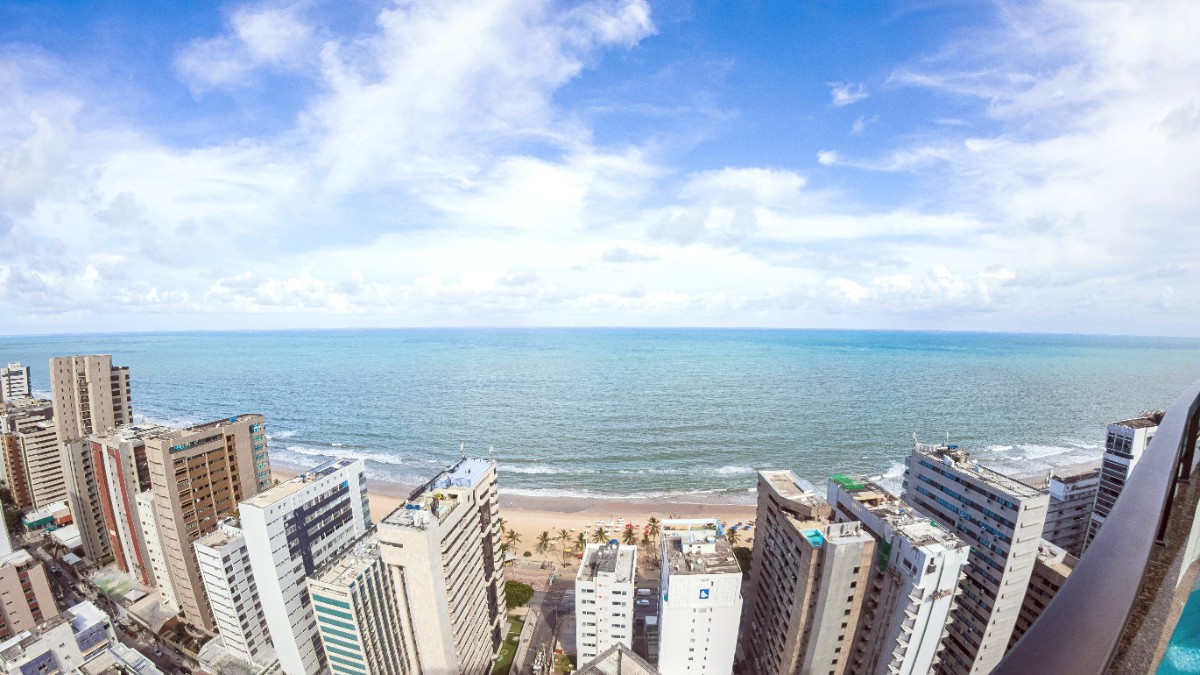
The Northeast, Brazil
This is the main airport serving Recife and its surrounding metropolitan region. It is a modern facility that handles both domestic and international flights.
Flight prices to Recife vary significantly with the seasons.
Prices tend to be lower during the low season (May, June, October, November). Booking flights in advance advisable, especially for peak season.
Major international and local car rental agencies have counters within the airport terminal. DiscoverCars.com a resource.
Free Wi-Fi available throughout the airport.
This section is not applicable for direct arrival in Recife, as it is an internal Brazilian city. Brazil shares land borders with several South American countries, but these are far from Recife. Long-distance train travel is not a main mode of inter-city transport in Brazil. Recife has a metro system for urban and suburban travel, but no inter-state passenger trains.
Brazil has an extensive and reliable long-distance bus network, a common way to travel between cities. Recife's main intercity bus terminal is Terminal Integrado de Passageiros (TIP), located west of the city and connected to the metro system via the TIP/Rodoviária station. Major bus companies Progresso, Expresso Guanabara, Águia Branca, and Itapemirim offer connections to cities across the Northeast and other Brazilian regions. Bus classes range from conventional to executive and sleeper, with varying comfort levels for longer journeys.
To rent a car, you need a valid national driver's license. An International Driving Permit (IDP) is recommended. Minimum driving age usually 18, but rental agencies often require 21 or 25. A credit card in the driver's name needed for security deposit. Driving in Recife can be challenging due to heavy traffic and aggressive drivers. Road conditions vary. Parking difficult and expensive in some areas. Renting a car not typically recommended for city sightseeing, public transport and ride-shares more convenient. More suitable for day trips outside the city.
Recife's coastal location means sea travel is another way to arrive, mainly for cruise passengers.
For cruise passengers, standard immigration and customs procedures apply upon entering Brazil.
While Recife is famous for its rivers, large-scale river transportation for inter-city travel is not common.
Prepare for your departure by understanding exit procedures and airport recommendations.
Less common for tourists. Specific licenses and experience with local traffic needed. Generally not suggested due to safety concerns.
Limited public bike-sharing programs, mainly recreational. Some hotels offer rentals. Infrastructure limited outside designated paths. Cycling in heavy traffic hazardous.
Road signage limited. Navigating challenging without GPS. Carjacking and other road-related crimes can occur. Avoid driving at night on unlit or unfamiliar roads. Always use GPS and keep doors locked.
Recife's main intercity bus terminal, Terminal Integrado de Passageiros (TIP), west of the city.
Buses range from conventional (comum) to executive (executivo) and sleeper (leito) class, with varying levels of comfort and amenities for longer journeys.
Some local tour operators offer city tours by bus, which often include hop-on-hop-off options. These tours cover major attractions, providing an overview of the city's highlights.
Boat tours are popular on the Capibaribe River. These give unique perspectives of the city's many bridges and architecture. While not a regular means of transportation for daily commuting, they are a suggested scenic activity.
Public transport accessibility is improving, especially on newer metro lines, but can still present challenges. When booking taxis or ride-sharing services, you may be able to request accessible vehicles, though availability varies. Research specific services or contact local accessibility organizations in advance for particular needs.